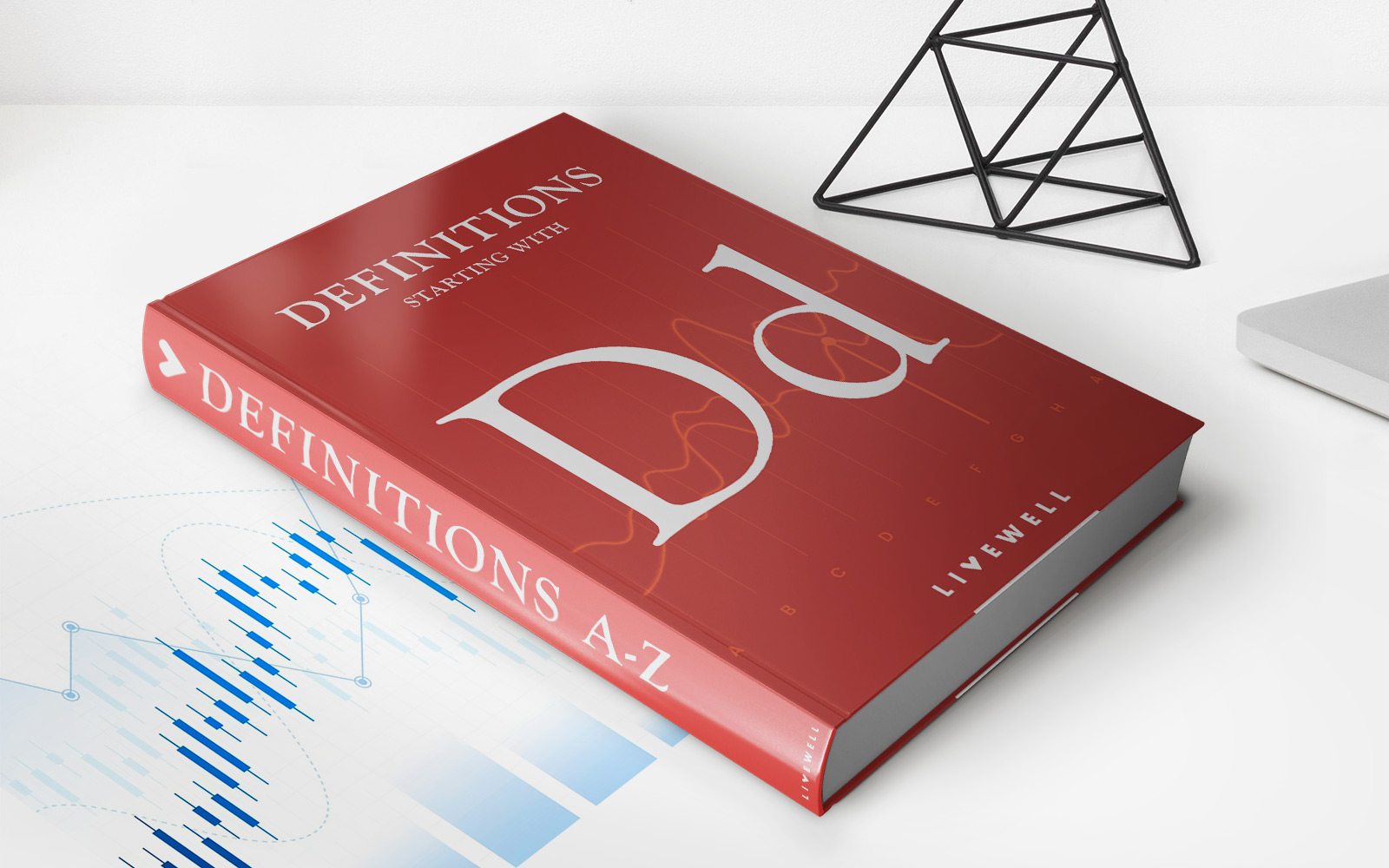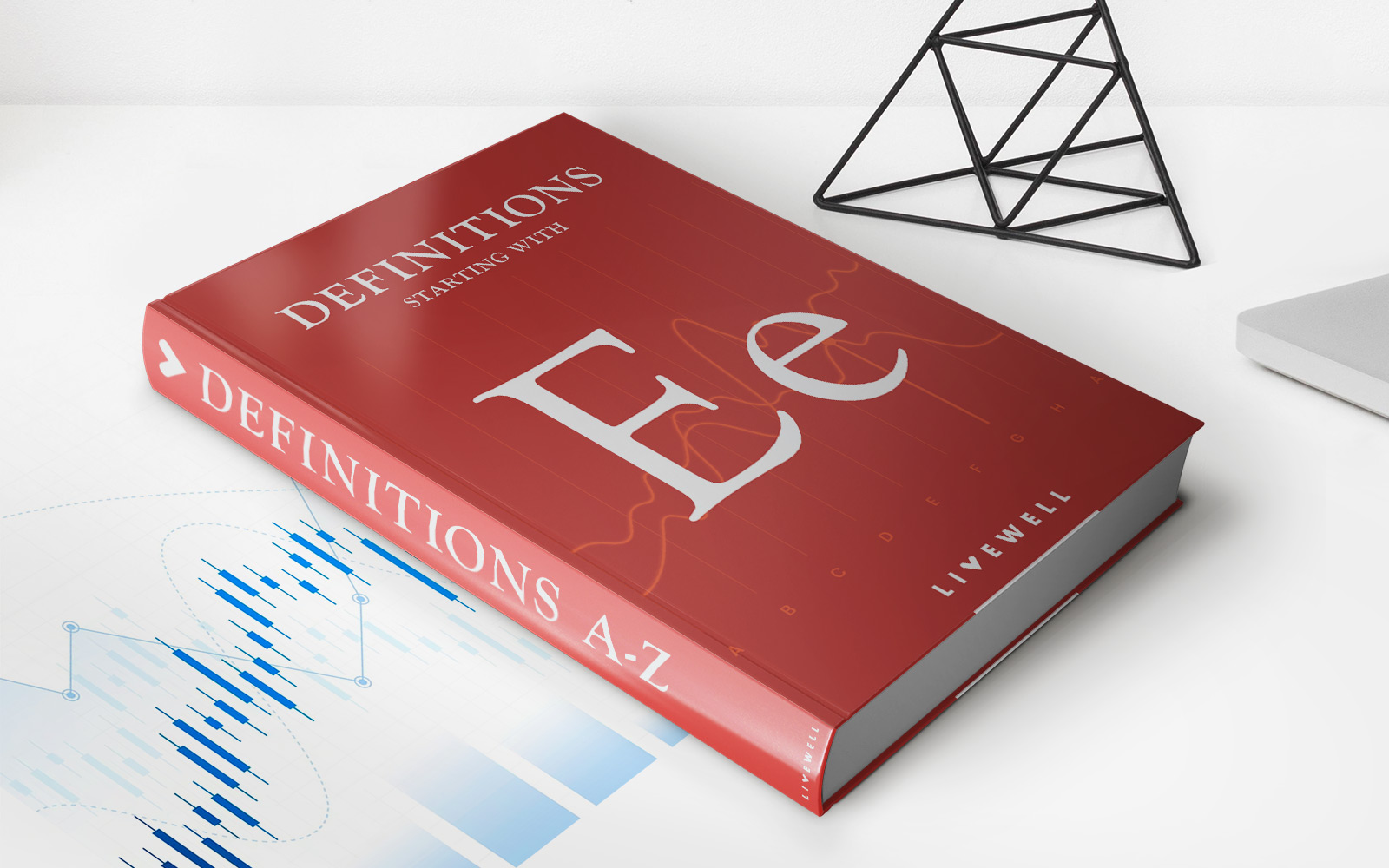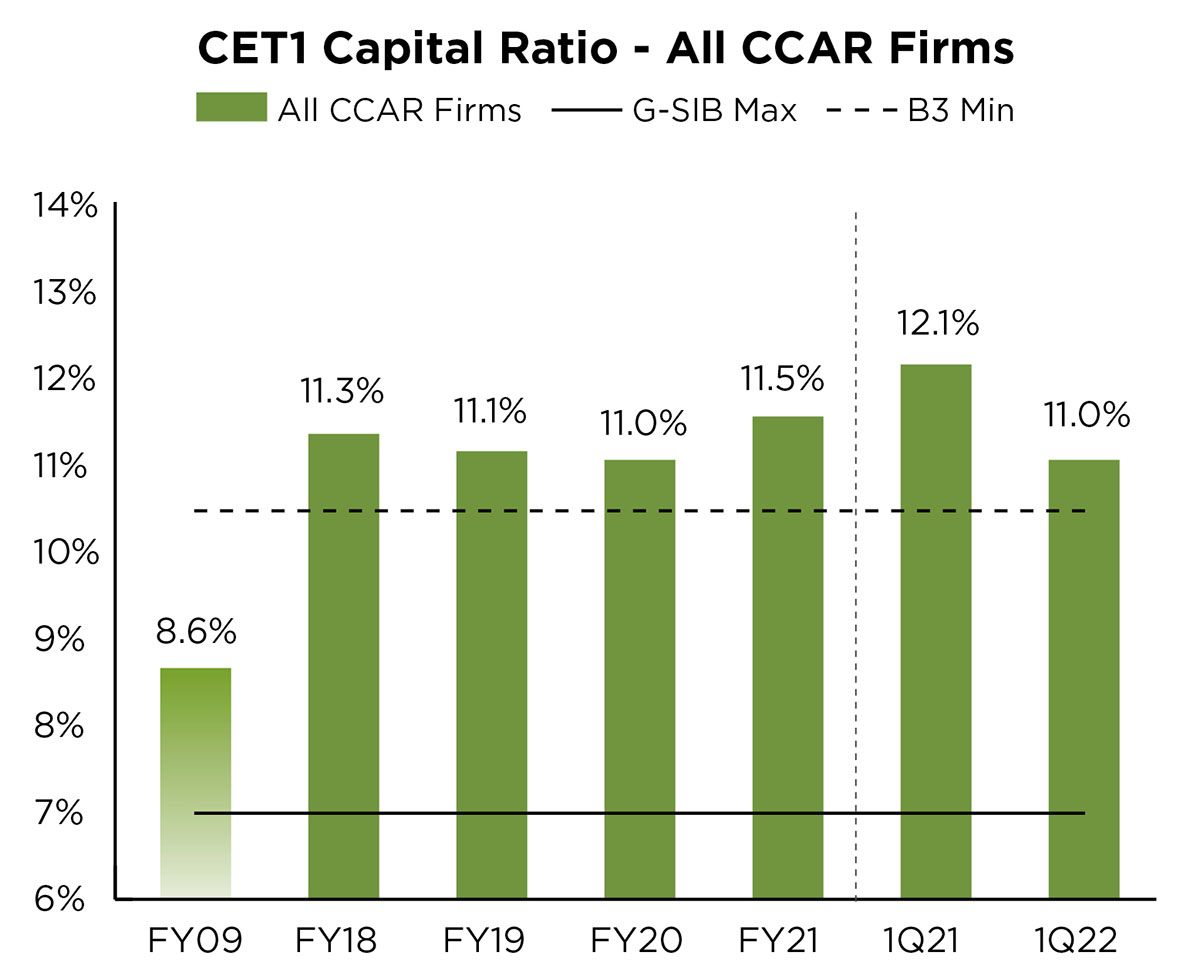Home>Finance>How Can Opening A Bank Account Help You With Your Financial Plan And Money Management?


Finance
How Can Opening A Bank Account Help You With Your Financial Plan And Money Management?
Published: February 28, 2024
Learn how opening a bank account can enhance your financial plan and money management. Discover the benefits of integrating banking services into your overall finance strategy.
(Many of the links in this article redirect to a specific reviewed product. Your purchase of these products through affiliate links helps to generate commission for LiveWell, at no extra cost. Learn more)
Table of Contents
Introduction
Opening a bank account is a fundamental step in managing personal finances and building a strong financial foundation. It serves as a cornerstone for effective money management and provides a range of benefits that can significantly impact one's financial well-being. Whether you're saving for the future, planning for major life events, or simply looking to streamline your financial transactions, a bank account plays a pivotal role in achieving these objectives. This article delves into the importance of opening a bank account, the various benefits it offers, the different types of accounts available, and practical tips for leveraging your bank account to enhance your financial planning and money management strategies.
A bank account serves as a secure repository for your funds, offering a level of protection that surpasses traditional cash storage methods. Moreover, it provides access to a suite of financial services and tools that can empower individuals to effectively manage their money. From savings accounts to checking accounts and specialized accounts tailored to specific financial goals, the options are diverse, catering to the unique needs of account holders. Understanding the significance of each account type and how it aligns with your financial objectives is crucial to making informed decisions that support your financial well-being.
Furthermore, opening a bank account fosters financial inclusion, allowing individuals to participate in the formal financial system and access a wide range of financial products and services. This inclusivity is pivotal in promoting economic stability and growth, as it enables individuals to save, invest, and transact with greater convenience and security. As we delve deeper into the intricacies of bank accounts, it becomes evident that they serve as a cornerstone for personal financial management, providing a platform for individuals to cultivate healthy financial habits and work towards their long-term financial aspirations.
In the subsequent sections, we will explore the multifaceted benefits of having a bank account, the different types of accounts available, and practical insights on how to leverage your bank account for effective financial planning and money management. Whether you're a seasoned investor or just starting to take charge of your finances, understanding the role of a bank account in your financial journey is essential for making informed and empowered financial decisions.
Importance of Opening a Bank Account
Opening a bank account holds immense significance in the realm of personal finance. It serves as the gateway to a spectrum of financial services and opportunities, offering individuals the means to securely store their money, build savings, and manage transactions efficiently. One of the primary reasons why opening a bank account is essential is the security it provides. Unlike keeping cash at home, a bank account offers protection against theft, loss, and damage, ensuring that your hard-earned money is safeguarded.
Moreover, a bank account facilitates financial transactions, allowing individuals to deposit, withdraw, and transfer funds with ease. This not only streamlines day-to-day money management but also enables the seamless execution of financial obligations and commitments. In addition, many employers require a bank account for salary deposits, making it a practical necessity in today’s professional landscape.
From a broader perspective, opening a bank account contributes to financial inclusion, bridging the gap between individuals and the formal financial system. This inclusion is vital in promoting economic stability and empowering individuals to participate in financial activities such as saving, investing, and accessing credit. It also fosters a sense of financial responsibility and accountability, encouraging individuals to cultivate healthy financial habits and make informed decisions about their money.
Furthermore, a bank account serves as a platform for accessing a diverse range of financial products and services, including loans, credit cards, and investment opportunities. It lays the groundwork for individuals to embark on their financial journey, whether it involves saving for a major purchase, planning for retirement, or investing in the stock market. By providing a centralized hub for financial activities, a bank account offers unparalleled convenience and flexibility in managing one’s financial affairs.
Overall, the importance of opening a bank account extends beyond mere convenience; it underpins financial stability, security, and access to a myriad of financial opportunities. As we delve deeper into the benefits and intricacies of bank accounts, it becomes evident that they are indispensable tools for individuals seeking to take control of their finances and build a solid foundation for their financial future.
Benefits of Having a Bank Account
Having a bank account offers a multitude of advantages that are instrumental in shaping an individual’s financial landscape. One of the primary benefits is the security and protection it provides for your money. Unlike keeping cash at home, a bank account safeguards your funds against loss, theft, and damage, offering peace of mind and financial resilience. This security is further reinforced by the regulatory measures and insurance protections that govern bank accounts, ensuring that account holders are shielded from potential financial risks.
Additionally, a bank account serves as a gateway to financial services and products that can significantly enhance your financial well-being. From savings accounts that enable you to accrue interest on your deposits to checking accounts that facilitate seamless transactions and bill payments, the diverse range of account options caters to various financial goals and needs. Moreover, having a bank account opens the door to credit opportunities, including loans and credit cards, which can be instrumental in achieving major financial milestones and addressing unexpected expenses.
Beyond the practical aspects, a bank account fosters financial inclusion, allowing individuals to participate in the formal financial system and access a myriad of financial tools and resources. This inclusivity is pivotal in promoting economic empowerment and stability, as it enables individuals to save, invest, and transact with greater convenience and security. Moreover, a bank account cultivates a sense of financial responsibility and accountability, encouraging individuals to manage their money prudently and make informed financial decisions.
Furthermore, having a bank account provides a platform for building a financial history, which is crucial for accessing future credit and investment opportunities. By demonstrating responsible financial behavior through their bank accounts, individuals can strengthen their creditworthiness and establish a solid foundation for their long-term financial aspirations. This financial history also plays a pivotal role in shaping one’s financial reputation and credibility, opening doors to a wide array of financial opportunities and partnerships.
In essence, the benefits of having a bank account extend far beyond the realm of basic money management. They encompass financial security, accessibility to a range of financial services, and the opportunity to build a strong financial foundation. As we explore the various types of bank accounts and their respective advantages, it becomes evident that a bank account is a cornerstone for individuals seeking to navigate their financial journey with confidence and foresight.
Types of Bank Accounts
Banking institutions offer a diverse array of account types, each tailored to specific financial needs and objectives. Understanding the nuances of these accounts is crucial for aligning your financial preferences with the most suitable banking products. The following are some common types of bank accounts:
- Savings Accounts: These accounts are designed to help individuals save and grow their money over time. They typically offer interest on the deposited funds, allowing account holders to accrue earnings on their savings. Savings accounts are ideal for building an emergency fund, saving for specific goals, or setting aside funds for future expenses.
- Checking Accounts: Checking accounts are geared towards everyday transactions, providing a convenient platform for depositing and withdrawing money, writing checks, and making electronic payments. They offer flexibility and accessibility, making them suitable for managing day-to-day expenses and financial transactions.
- Certificate of Deposit (CD) Accounts: CD accounts offer higher interest rates than regular savings accounts in exchange for locking in the deposited funds for a specific period. They are suitable for individuals looking to earn a higher yield on their savings while maintaining a predetermined savings timeline.
- Money Market Accounts: Money market accounts combine the features of savings and checking accounts, offering interest on deposited funds while allowing limited check-writing capabilities. These accounts often require a higher minimum balance but provide competitive interest rates.
- Individual Retirement Accounts (IRAs): IRAs are designed for retirement savings and offer tax advantages to account holders. Traditional IRAs allow tax-deferred growth on contributions, while Roth IRAs provide tax-free withdrawals on qualified distributions, making them valuable tools for long-term retirement planning.
These are just a few examples of the diverse range of bank accounts available, each catering to specific financial objectives and preferences. By understanding the unique features and benefits of each account type, individuals can make informed decisions that align with their financial goals and aspirations.
How to Open a Bank Account
Opening a bank account is a straightforward process that can be initiated with careful consideration and preparation. The following steps outline the typical procedure for opening a bank account:
- Research and Select a Bank: Begin by researching different banks and financial institutions to identify the one that best aligns with your financial needs and preferences. Consider factors such as account fees, minimum balance requirements, ATM access, and online banking capabilities.
- Choose the Right Account Type: Based on your financial goals and intended use of the account, select the most suitable account type, whether it’s a savings account, checking account, CD account, or specialized account designed for specific purposes.
- Gather Required Documents: Prepare the necessary documentation, which typically includes a valid form of identification (such as a driver’s license or passport), proof of address, and, in some cases, a social security number or tax identification number.
- Visit the Bank or Apply Online: Visit the chosen bank branch in person or apply for an account online, depending on the institution’s options. If applying in person, bring the required documents and be prepared to provide personal information for the account application.
- Complete the Application: Fill out the account application, providing accurate personal details and specifying any additional features or services you wish to include with the account, such as overdraft protection or direct deposit setup.
- Review and Understand the Terms: Carefully review the terms and conditions of the account, including any associated fees, interest rates, and account maintenance requirements. Seek clarification on any aspects that are unclear before finalizing the account opening process.
- Make an Initial Deposit: Depending on the account type and bank policies, you may be required to make an initial deposit to activate the account. This can typically be done through a cash deposit, check, or electronic transfer.
- Receive Account Materials: Upon successful account opening, you will receive account materials, including a debit card, checks (if applicable), and account documentation. Familiarize yourself with the account features and available services to make the most of your new banking relationship.
By following these steps and ensuring that you have the necessary documentation and information at hand, you can navigate the process of opening a bank account with confidence and efficiency, setting the stage for effective money management and financial planning.
Using Your Bank Account for Financial Planning
Your bank account can serve as a powerful tool for effective financial planning, offering a range of features and functionalities that can enhance your overall financial management. Here are some strategies for leveraging your bank account to support your financial planning endeavors:
- Automated Savings: Set up automatic transfers from your checking account to a designated savings account to facilitate consistent savings habits. This automated approach can help you steadily build your savings without the need for manual intervention, fostering a disciplined approach to financial planning.
- Goal-Based Accounts: Consider opening separate savings accounts dedicated to specific financial goals, such as an emergency fund, vacation fund, or home down payment fund. By earmarking funds for distinct purposes, you can track your progress towards each goal and allocate your resources strategically.
- Budget Tracking: Many banks offer budgeting tools and expense tracking features through their online banking platforms. Take advantage of these resources to monitor your spending patterns, categorize expenses, and gain insights into your financial habits, thereby informing your budgeting and financial planning decisions.
- Direct Deposit Allocation: If your employer offers direct deposit, consider allocating a portion of your paycheck to different accounts based on your financial priorities. For example, you can designate a percentage of your income for savings, another for recurring expenses, and the remainder for discretionary spending, streamlining your financial allocations from the outset.
- Interest-Bearing Accounts: Opt for interest-bearing accounts, such as high-yield savings accounts or money market accounts, to maximize the growth potential of your savings. The interest earned can contribute to your long-term financial objectives and serve as a valuable component of your financial planning strategy.
By integrating these practices into your financial planning approach, you can harness the capabilities of your bank account to cultivate healthy financial habits, optimize your savings efforts, and gain valuable insights into your financial dynamics. This proactive engagement with your bank account can lay the groundwork for a robust financial plan and empower you to make informed decisions that align with your financial goals.
Money Management Tips with a Bank Account
Effectively managing your finances with a bank account involves a combination of strategic planning, prudent decision-making, and leveraging the features offered by your financial institution. Here are some valuable tips for optimizing your money management through your bank account:
- Regularly Monitor Your Account: Stay vigilant about monitoring your account activity, including incoming deposits, outgoing expenses, and any fees or charges. Regularly reviewing your account statements and online transactions can help you detect any discrepancies or unauthorized charges promptly.
- Set Up Account Alerts: Many banks offer customizable account alerts that notify you about account balances, large transactions, or upcoming bill payments. Leveraging these alerts can help you stay informed about your financial activity and maintain control over your account management.
- Optimize Your Bill Payments: Use your bank account’s online bill payment feature to streamline your recurring expenses. Automating bill payments can help you avoid missed payments, late fees, and the hassle of manual bill management, contributing to a more efficient and organized approach to money management.
- Track Your Spending: Utilize your bank’s online banking tools or personal finance apps to categorize and track your spending. Understanding your spending patterns and identifying areas where you can make adjustments can facilitate better budgeting and expense management.
- Maximize Account Benefits: Familiarize yourself with the features and benefits offered by your bank account, such as cashback rewards, ATM fee reimbursements, or account perks. By taking full advantage of these offerings, you can optimize the value derived from your banking relationship.
- Regularly Review Your Financial Goals: Use your bank account as a platform for assessing your progress towards financial goals. Whether it’s saving for a major purchase, building an emergency fund, or planning for retirement, regularly evaluating your financial objectives can inform your money management decisions and keep you aligned with your long-term aspirations.
Implementing these money management tips can help you harness the full potential of your bank account, enabling you to maintain financial control, optimize your resources, and work towards a more secure and prosperous financial future.
Conclusion
Opening and utilizing a bank account is a foundational step in personal finance that offers a multitude of benefits and opportunities for effective money management and financial planning. From the security and protection it provides for your funds to the diverse range of account types tailored to specific financial needs, a bank account serves as a cornerstone for individuals seeking to fortify their financial well-being.
By leveraging the features and capabilities of a bank account, individuals can automate their savings, streamline their expenses, and gain valuable insights into their financial habits. The account becomes a strategic tool for financial planning, enabling individuals to allocate their resources thoughtfully, track their progress towards financial goals, and maximize the growth potential of their savings through interest-bearing accounts.
Moreover, the inclusivity and accessibility offered by a bank account promote financial empowerment, allowing individuals to participate in the formal financial system, access credit opportunities, and cultivate healthy financial habits. This engagement with the banking infrastructure fosters a sense of financial responsibility and accountability, empowering individuals to make informed decisions and navigate their financial journey with confidence.
In conclusion, a bank account is not merely a repository for funds; it is a dynamic instrument for financial empowerment, stability, and growth. By understanding the importance of opening a bank account, the diverse benefits it offers, and the practical strategies for leveraging it in financial planning and money management, individuals can harness the full potential of their banking relationship and work towards a more secure and prosperous financial future.














